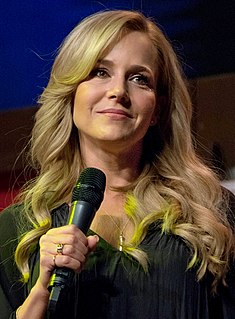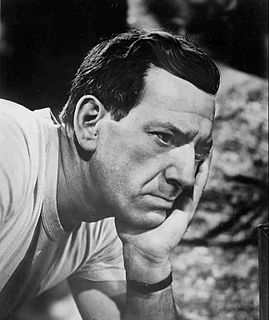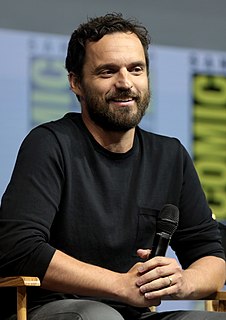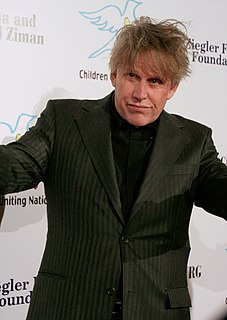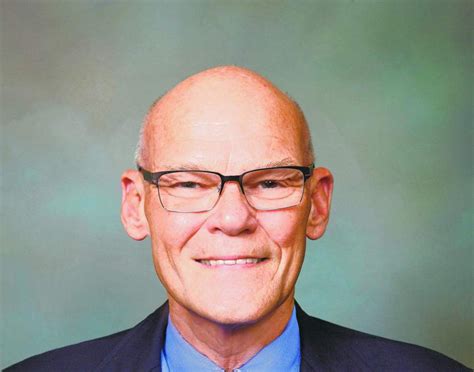A Quote by Wendell Pierce
When you're doing comedy on stage, it's great because you have the audience there and they're like another actor in the scene. You feed off of them, laugh. But in film when everyone's quiet, it's all about timing. But the key to that is to be authentic. Be in the moment, and if you play the moment truthfully, the humor will be there.
Related Quotes
My philosophy is that if you're playing a moment truthfully, that it's a funny moment, then hopefully it will be funny. I like to just go for a truth in the work as much as I can. There's a lack of ego when you're working with comedy that I really love. It's hard to come up with something funny. It's become a fun game in a way. Everyone is going for the gold, for that humor.
Comedy is more difficult than drama. I think it's really difficult to make someone laugh because people have very different comedic sensibilities. In drama, you can get away with being a great actor and surrounded by great actors and having good writing. But in comedy you have to listen and you have to perform with a certain rhythm, because if you don't, it's like playing a wrong note in the orchestra and you can hear the off key and it will fall flat and you won't get that instant response.
I get the greatest joy from just doing anything, being an actor. Doing music, and doing what I love to do. I don't make a huge distinction between comedy and drama. I think the whole point is just trying to be as honest, from moment to moment, as you can be. If you're honest about the material, and the material is ridiculous, then you're in a comedy.
But when you're in front of an audience and you make them laugh at a new idea, you're guiding the whole being for the moment. No one is ever more him/herself than when they really laugh. Their defenses are down. It's very Zen-like, that moment. They are completely open, completely themselves when that message hits the brain and the laugh begins. That's when new ideas can be implanted. If a new idea slips in at that moment, it has a chance to grow.
The only tool we have as artists is selectivity. If you're a painter, you select the color, the lines, how severe they should be. As an actor you develop how angry you should be. You select how angry you should be. You listen to the other actor and then you react. In film, sometimes the other actor isn't even there. You have to play the scene. What I do is I call on my experience on the stage. I play the scene and I hope that I reach a certain level of integrity because that's what I learned on the stage.
I have a lot of films that I haven't gotten made, and that continues to trouble me. But someday, some way or another, I think I will. It's all about timing. There's a moment when you're hot and studios will make your next film, and then there's a moment when you're really cold, and they couldn't care less what you want to do next. That's when you have to recede and make lower-budgeted films.
I like doing comedy, I like doing drama. Naturally I like to do, I like doing dramas, I like conflict, and when I do a comedy, you know, I've found that, like, romantic comedy is the trickiest one, because often it's neither: it's not romantic and it's not funny. So, like, I like a comedy that's biting. It's biting humor or really quirky humor.
The stage is the opposite: you are talking loud so you can project to the back row and you know the whole play. In a movie, you are scene-to-scene; you only know the purpose of that scene. On the stage, that is artistic science. It is real, it is loving, it is truthfully you. It is two different formulas to make two different art pieces, but it is all about truth.
There was a magic about the sea. People were drawn to it. People wanted to love by it, swim in it, play in it, look at it. It was a living thing that was as unpredictable as a great stage actor: it could be calm and welcoming, opening its arms to embrace it's audience one moment, but then could explode with its stormy tempers, flinging people around, wanting them out, attacking coastlines, breaking down islands.
An actor must communicate his author's given message--comedy, tragedy, serio- comedy; then comes his unique moment, as he is confronted by the looked-for, yet at times unexpected, reaction of the audience. This split second is his; he is in command of his medium; the effect vanishes into thin air; but that moment has a power all its own and, like power in any form, is stimulating and alluring.
Don't let a single comic moment pass you by; then help the audience get the laughs. Give them permission to laugh by holding for laughter and by letting them know early on what they're in for. In the first few moments, the audience is gathering information, looking at the scenery and costumes. Create a comic moment as soon as you can.




